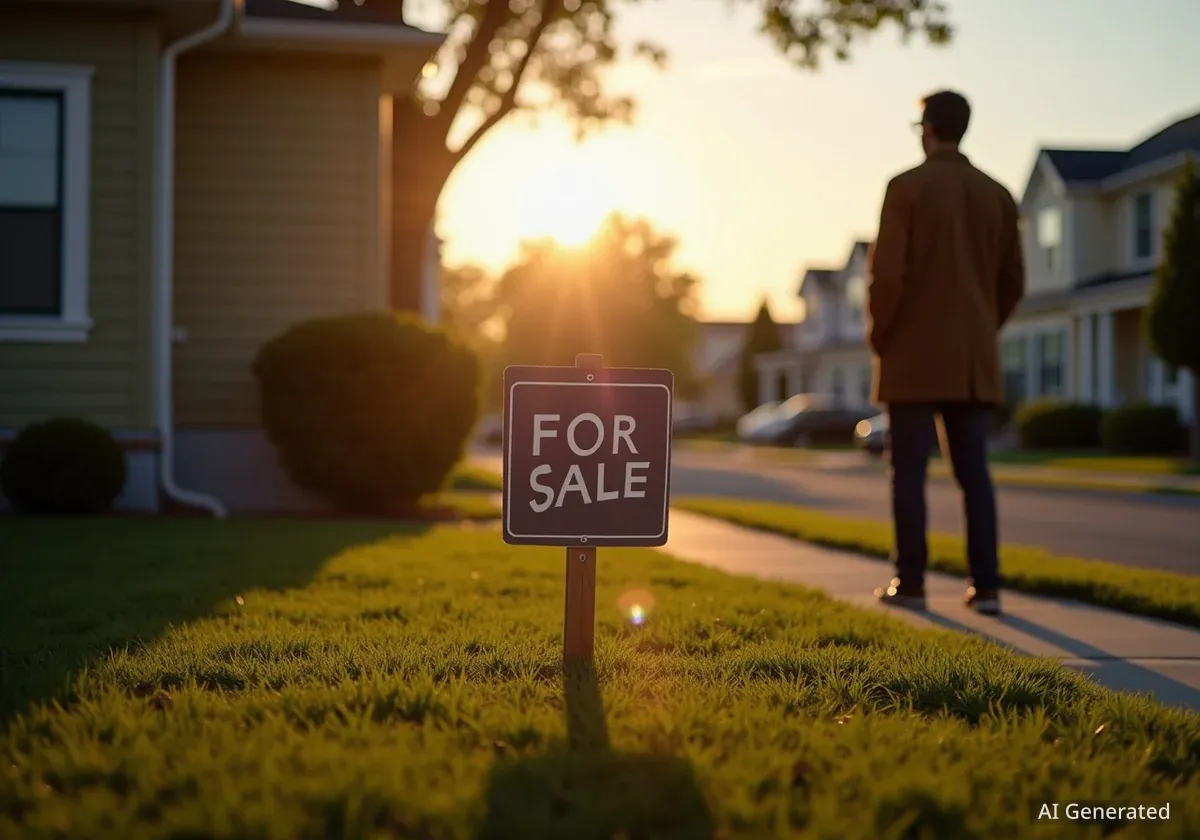A number of Hispanic homeowners in Northwest Arkansas are putting their properties on the market due to growing concerns over immigration enforcement, according to several local real estate professionals. This trend coincides with increased federal funding for immigration operations and new state-level agreements to support federal agencies.
Real estate agents in the rapidly growing region report a noticeable shift in the housing market, with a decline in home purchases by Hispanic buyers and a rise in listings from current Hispanic homeowners who fear deportation or visa revocation.
Key Takeaways
- Real estate agents in Northwest Arkansas report a rise in Hispanic homeowners selling properties due to immigration enforcement concerns.
- Home purchases by Hispanic buyers have decreased by nearly 30%, according to one realty group.
- The trend follows increased federal funding for Immigration and Customs Enforcement (ICE) and a new agreement for the Arkansas National Guard to support ICE operations.
- Recent data shows a significant increase in ICE apprehensions of individuals without criminal convictions.
- Despite the trend, agents advise against panic-selling, highlighting the long-term value of real estate in the growing region.
Immigration Enforcement and Its Local Impact
The current federal administration has prioritized immigration enforcement, reflected in a significant budget increase for Immigration and Customs Enforcement (ICE). Federal funding for ICE operations has grown from $9.9 billion to $28 billion. The agency has also been authorized to offer incentives like signing bonuses and student loan forgiveness to recruit new personnel.
In Arkansas, state-level actions have amplified these concerns. In early September, Governor Sarah Huckabee Sanders announced that the Arkansas National Guard would provide logistical support to ICE. A pending agreement could further expand this role, allowing military personnel to be trained and deputized by ICE to assist in immigration policing.
ICE Apprehension Data
While ICE has stated its focus is on deporting violent or repeat criminal offenders, recent data suggests a broader scope. The Deportation Data Project, using information obtained through the Freedom of Information Act, found that ICE apprehended 30,000 individuals in the U.S. during June. According to a report in The Economist citing this data, apprehensions of non-criminals tripled compared to the previous year, outnumbering criminal arrests for the first time since December 2023.
A Shifting Real Estate Market
This enforcement climate is creating tangible effects in the Northwest Arkansas real estate market. Jonathan Melendez and Aldo Gonzalez of MG Realty Group have observed a nearly 30% decrease in home purchases by Hispanic individuals. They note this is a stark contrast to other demographic groups, who continue to show strong interest in the region's properties.
"We've had a significant drop, but we've also sold homes to clients who don't have legal status, only their ITIN number," Melendez said, referring to the Individual Taxpayer Identification Number used for tax filing by some non-citizens.
Janeth Duran, a Re/Max agent in Rogers, has seen the same pattern. "It has been felt in the market over the last year, especially in recent months with the immigration issue," she stated.
Personal Stories Drive Decisions
Agents are hearing directly from clients whose decisions are driven by fear. Aldo Gonzalez shared the story of a client from El Salvador who is selling a home he purchased only two years ago.
"A Salvadoran client bought his house just two years ago and now has a deportation order. He called me to say, 'You know what? I want to sell my house. It's not if they'll catch me, but when.' So he wants to prepare everything and have the money ready, so he can go to El Salvador," Gonzalez recounted.
Irvin Camacho, a local immigrant activist, explained that the fear of detention is a powerful motivator. "People who have been detained call it the worst experience they've ever gone through," he said, describing the conditions as brutal. "So they decide to self-deport -- which is what this administration wants."
Camacho added that this constant state of anxiety affects even those with legal residency, who worry about being detained while trying to prove their status. "People have given up," he said.
Agents Advise Caution Against Panic Selling
Despite the prevailing fear, the real estate agents interviewed for this story advise against making hasty decisions. They stress that real estate is a long-term investment and that selling prematurely could lead to significant financial loss, especially in a high-growth area like Northwest Arkansas.
Northwest Arkansas Growth Projections
The region's population is expected to grow from just over 600,000 to 1 million residents by 2050, according to U.S. census estimates. This rapid growth continues to drive up property values and create a housing shortage.
The agents emphasize that there are legal mechanisms to protect property assets even if the owner must leave the country.
- Power of Attorney: Homeowners can grant a trusted person power of attorney to manage or sell the property on their behalf.
- International Transactions: Title companies are equipped to handle international paperwork and wire sale proceeds to bank accounts in other countries.
- Rental Income: Properties can be rented out, providing a continuous income stream that can be deposited into an international account.
"You can take several steps to protect yourself," Melendez explained. "If you have a bank account in your country, any income from rent or the sale of the property can be deposited directly into your account."
Duran echoed this sentiment, urging homeowners not to act out of fear. "This has been done for a long time; you just need to have the information," she said. "The most important thing is not to be afraid. Your house will still be yours, whether here or in China."
The Long-Term Economic Picture
The economic fundamentals of Northwest Arkansas make selling now a potentially regrettable decision. The area's strong job market and quality of life continue to attract new residents, putting upward pressure on home prices.
In April 2024, the city of Fayetteville officially declared a housing crisis. A recent housing assessment revealed that the median house value in the city has increased by 275% over the last two decades, while median rent has risen by 78%.
Gonzalez warned that selling now could make re-entry into the market extremely difficult in the future. "When they sell their home, they'll probably do well, but if they want to buy again later, it will be much harder," he said. "They may have money in hand today, but in the future, that money won't be enough to buy a similar home."





